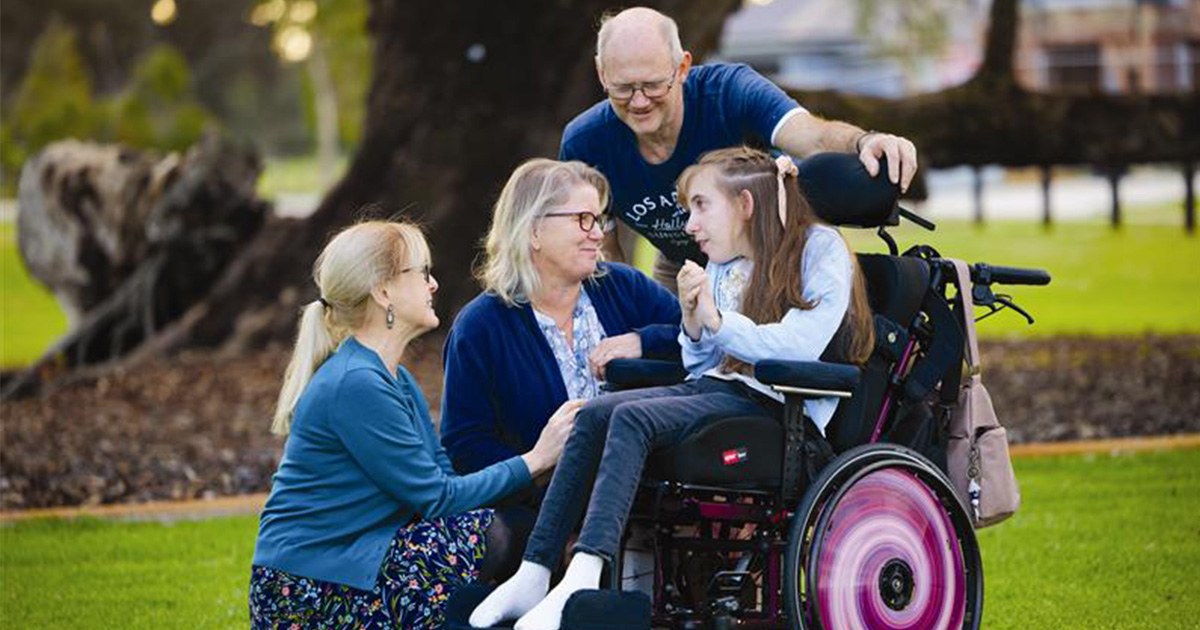Search
Research
The Role of Grandparents in Facilitating Children’s Physical ActivityResearch suggests there is considerable opportunity to improve children's movement behaviors while they are being cared for by their grandparents. An understanding of the extent to which grandparent practices facilitate children's engagement in physical activity is critical to the development of health interventions targeting grandparent caregivers.
Research
3-Dimensional Virtual Reality Versus 2-Dimensional Video for Distraction during the Induction of Anesthesia in Children to Reduce Anxiety: A Randomized Controlled TrialPreoperative anxiety is common in children. It can contribute to negative experiences with anesthetic induction and may cause adverse physiological and psychological effects. Virtual reality (VR) and electronic tablet devices are 2 audiovisual distraction tools that may help to reduce anxiety and enhance the preoperative experience. This study aimed to compare the use of an immersive 3-dimensional (3D) VR to 2-dimensional (2D) video on anxiety in children during induction of general anesthesia.
Research
Population-referenced percentiles for total movement and energetic play at early childhood education and careChildcare services such as preschools and long day care centres have been identified as a key setting to promote physical activity in early childhood as they provide access to large numbers of children for prolonged periods. Yet, specific standards for the type and amount of physical activity children accumulate whilst attending childcare are lacking. The purpose of this study was to derive population-referenced percentile values for children's total movement and energetic play whilst attending early childhood education and care services.
Research
Alcohol pharmacotherapy dispensing trends in Australia between 2006 and 2023This study aimed to investigate acamprosate and naltrexone dispensing patterns in Australia.
Research
Protecting and promoting young people's social and emotional health in online and offline contextsYoung people’s use of mobile phones and access to the Internet has increased dramatically in the last decade, especially among those aged 9–15 years. Young people now rely on information and communication technology for much of their social interaction, which can have both positive and negative effects on their social and emotional well-being. Of particular concern is the extent to which digital technology (DT) provides opportunities for cyberbullying.
Research
Use of high-resolution fluorescence in situ hybridization for fast and robust detection of SARS-CoV-2 RNAsEarly, rapid, and accurate diagnostic tests play critical roles not only in the identification/management of individuals infected by SARS-CoV-2, but also in fast and effective public health surveillance, containment, and response. Our aim has been to develop a fast and robust fluorescence in situ hybridization (FISH) detection method for detecting SARS-CoV-2 RNAs by using an HEK 293 T cell culture model.
Research
Diet culture on TikTok: a descriptive content analysisTo investigate how dieting is portrayed on TikTok and the potential implications for public health considering the effect of diet culture on eating disorders amongst young people.

Affecting approximately 400 people in Australia, Rett syndrome is a rare neurological disorder that occurs almost exclusively in girls and affects mobility and development, impacting everything from walking and talking to eating and breathing.

Toddlers exposed to screen time at home are hearing fewer words and making fewer vocalisations, findings from the first longitudinal study to measure the relationship between family screen use and children’s language development have shown.

The Third Conversation
